Bees in your Gardens
‘I have a huge belief in the importance of bees, not just for their honey, which is a healing and delicious food, but the necessity of bee colonies that are vital to the health of the plant.’
-Trudie Styler, Activist
As you know, we LOVE our pollinators, and this month we are celebrating the most well-known and possibly misunderstood pollinators – BEES. As the year plays out its cycle, all of us at Little Bird see first-hand the role that Bees play in the life of plants. The nursery is buzzing with activity, from the first blooming Witch Hazel to the late autumn Coreopsis. We observe Bumble Bees sleeping on the flowers of Scabiosa or inside the flowers of Lavatera, along with the collective buzz of Honey Bees from the hives on the property. And while we mostly see Bumble Bees Bombus vosnesenskii and Honey Bees Apis mellifera, we occasionally spot other small bees and wasps.
The most common bees in our gardens are the Honey Bee, Mason Bee, and Bumble Bee. However, there are hundreds of bee species in the PNW. Planting various flowering plants, especially natives, will help protect our PNW native bee species. According to the Washington Native Bee Society, there are seven Native Bees that you might see buzzing around your gardens. Have any of you seen a Fairy Bee?
Washington Natives:
ALKALI BEE Normia melanderi
BLUE ORCHARD BEE - Osmia lignaria
WESTERN BUMBLE BEE - Bombus occidentalis
WESTERN LEAFCUTTER BEE - Megachile perihirta
FAIRY BEE - Perdita spp.
METALLIC GREEN SWEAT BEE - Agapostemon virescens
NOMAD BEE - Nomada spp.
Learning more about Bees, their habits, and our mutual need for survival is more important than you might think. Did you know that more than three-quarters of our food production is dependent on bee pollination? Creating supportive habitats for bees can be done in your gardens and landscapes by creating canopy layers, leaving dead snags and leaf litter around, hanging a few bee boxes, leaving some exposed soil, and planting complementary flowering plants.
Providing water for bees is an excellent way to support a happy and healthy habitat, too. It’s as easy as filling a shallow dish with water and adding a few rocks or gemstones to give bees a foothold as they drink, so they do not drown. A birdbath with graduating sides or anything shallow enough to provide water is helpful, especially during these very hot days. Bees like their water full of minerals so it is not necessary to tidy watering stations with fresh water.
Another way to protect our bees and, just as crucial to their continued survival, is how we treat other unwanted pests and diseases in our landscapes. Using herbicides and pesticides kills more than unwanted pests. They harm and kill essential insects, including bees. We feel pretty good about recommending Sound Horticulture, a company in Bellingham that sells beneficial insects. This company can be super helpful when it comes to pest problems like aphids, fungus gnats, and other pesky insects that try to invade our gardens and landscapes. Also, consider alternate ways of preventing unwanted pests like using good sanitation, cleaning tools between plants, proper watering techniques, knowing what conditions your plant wants, companion planting, and trap cropping in your gardens and yard.
We generally want to keep our distance and allow them to do their jobs. Even wasps have a job; though some species are more aggressive than others, a few, like the Great Golden Digger wasp, are not aggressive at all despite its intimidating size and coloring. Our mission at Little Bird is to learn as much as possible about our pollinator friends and share that information with you. With knowledge, fear and misunderstanding transform into curiosity, and our hard-working bees and wasps have a better chance of survival. And we need them to survive!
There is a lot of information online and from experts to help us get to know our busy buzzing friends. For example, did you know that many Bumble Bees are ground dwellers? They are also the key to pollinating your tomato plants! Others like Mason and Leaf Cutter Bees are highly effective pollinators, more effective than Honey Bees, and like to nest in holes and hollowed stems. If you see perfectly round holes cut out of your leaves, you have Leaf Cutter Bees nearby that are using this material to construct their nests. Honey Bees are the most well-known pollinators and positively impact many different types of plants and crops. They are gentle when loaded with pollen (and you’re not attacking their hive), and of course, they provide us with delicious local honey. Remember that these essential pollinators will protect themselves and sting or attack you when provoked.
AUGUST is a busy time for our bees. If you want your garden to come alive, allow a few herb plants like Mint or Oregano to flower, or make sure you have a few of their favorite plants around.
These plants come in wide varieties and colors, and the Bees LOVE them!
Planting a garden with bees in mind will ensure lasting beauty in our landscapes and gardens. Still, more importantly, it provides a healthy ecosystem and an abundant supply of fresh seasonal food, flowers, and other vegetation. Our agricultural systems and small farms depend on bees to help stock our produce shelves. We all — bees, humans, animals — depend on each other in the big circle of life.
Visiting your local nursery each season and having flowering plants that begin in late winter and carry on throughout the season means each Bee has the food source they need, from early mason bees to late-season bumbles.
There are so many resources that promote the health and well-being of all pollinators. Here are just a few to get you started:

